Photo
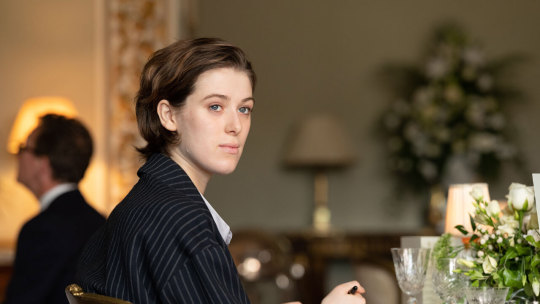
During the Q&A portion of Joanna Hogg’s The Souvenir: Part II screening at The Watershed in Bristol last week, an excited young filmmaker took to the mic to express her appreciation of the director’s work. She struggled to express herself or find the right words to say and, in the end, clammed up and couldn’t from a question for her idol at all. I imagine she was mortified – she was clearly inspired and overcome with nervous energy – and I’m not writing to shame her. I don’t believe I’ve ever contributed anything worthwhile or thoughtful to Q&A discussions, usually because I’m afraid of exactly that scenario: not being able to communicate the thing that a work of art has made me feel; failing to say anything original or interesting; and especially being seen to fail to communicate or be unoriginal. Basically, I don’t want to feel shame. We all have moments like the one I’m imagining this person experienced, where we make ourselves vulnerable and it doesn’t pay off. These moments are often seared onto our memory, and we will be lucky if we can let ourselves forget them.
The Souvenir: Part II is a film comprised almost entirely of moments like these. The protagonist Julie (played by the skilfully subdued Honor Swinton Byrne) is struggling to make a film about an abusive relationship that ended in the death of her partner Anthony (Tom Burke). It is film school in 1980s London, and the language of her world is lofty, elliptical, and vague – often functioning to obscure insecurity rather than connect sincerely. Richard Ayoade puts in a fantastically loud performance as an obnoxious and uncompromising student director who alienates his entire cohort - screaming “what does it make you feel!?” at his editor during one particularly hilarious scene - with his ultra-demanding style. Julie is on the other end of the directorial spectrum and demoralises her crew with her hesitant and confused instructions.
She seems desperate to render a grief that she doesn’t yet understand. Jim (Charlie Heaton), a young actor with his own buried demons, turns up at her flat one evening and they have wordless dispassionate sex. She propositions her gay editor, Max (Joe Alwyn), and is mortifyingly turned down when he reveals his sexuality. Scenes accumulate in which almost every character is desperately trying - and failing - to communicate something they don’t have the language for, whether it be verbal, physical, or visual.
For Julie, it appears that some of this failure is inherited, and you could make a solid argument for this being a film about British stoicism. While that isn’t my interpretation, many of the funniest moments occur in scenes in which Julie visits her parents William and Rosalind. James Spencer Ashworth and Tilda Swinton give quietly masterful performances as the patrician and sweet-natured root of Julie’s repression. The language of this mini world, much like that of the film school, is bankrupted by pretence and inhibition. In a brutally hilarious section, Rosalind takes a pottery class to try to get closer to her daughter and understand her creative impulse. In a moment of solipsistic depression, Julie accidentally drops and smashes her first piece (an “Estruscan” pot). “Worse things happen at sea,” William consoles.
In the metatextual ending of the film we see the way that cinematic moments are constructed for us. I was reminded of Abbas Kiarostami’s Taste of Cherry, as the apparatus of the production is presented on screen (we zoom out of the scene’s action and watch the crew filming). The effect of this put me in my mind of all the social apparatus that comprises the structure of our everyday interactions. Expression is only possible in collaboration – at the very least with a viewer/reader/listener – and there are so many external forces that colour exchanges. It is an affected but profound way for the film to end, and although the lasting effect left me feeling philosophical, I cannot understate how much The Souvenir: Part II made me laugh and filled me with a euphoric joy (I haven’t even mentioned the sparse but brilliant soundtrack, which deserves its own essay). It is as much a film about shame, repression, and artmaking as it is youth, innocence, and beauty.
Like William, Hogg was generous and made the best of the audience member’s question, but truthfully all I could think about was: “this is very The Souvenir: Part II”. The completely arresting atmosphere of the film had permeated the air in the room. There was a specific sort of tension: I felt as though everybody wanted to collaborate in this discussion, to say something valuable and redemptive, but didn’t know how. I wrote in my notebook after the showing: “try to make stuff out of all your most embarrassing moments”.
2 notes
·
View notes
Photo
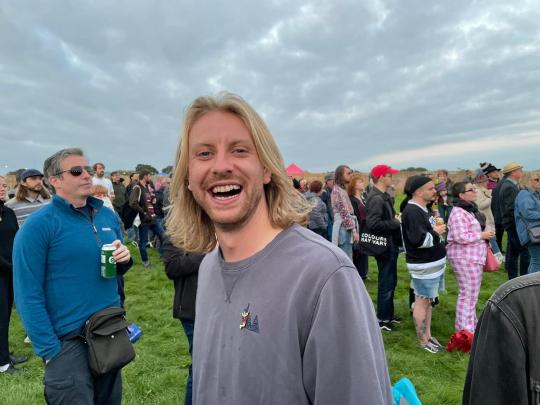
2021 time capsule for my memories:
MUSIC
releases i loved from 2021
For Those I Love - For Those I Love
Home Is Where - I Became Birds
Low - HEY WHAT
Loraine James - Reflection
Japanese Breakfast - Jubilee
Helado Negro - Far In
Water From Your Eyes - Structure
Nala Sinephro - Space 1.8
Mdou Moctar - Afrique Victime
Porches - All Day Gentle Hold !
Hand Habits - Fun House
Lowertown - The Gaping Mouth
Floating Points/Pharoah Sanders/The London Symphony Orchestra - Promises
Rosie Lowe & Duval Timothy - Son
Black Midi - Cavalcade
Holly Humberstone - The Walls Are Way Too Thin
Indigo De Souza - Any Shape You Take
Cassandra Jenkins - An Overview on Phenomenal Nature
Pinegrove - Amperland, NY
Bartees Strange - Live at Studio 4
Claire Rousay - A Softer Focus
Yves Tumor - The Asymptotical World
Mannequin Pussy - Perfect
Richard Dawson & Circle - Henki
Samia - Scout
Nation of Language - A Way Forward
Matt Sweeney & Bonnie “Prince” Billy - Superwolves
Self Esteem - Prioritise Pleasure
Nick Cave & Warren Ellis - CARNAGE
Hannah Peel - Fir Wave
Lucy Dacus - Home Video
Wiki - Half God
L’Rain - Fatigue
Snow Ellet - suburban indie rock star
Runnner - Always Repeating
Tim Hecker - The North Water OST
great older releases i discovered in 2021
Joyce Manor - Never Hungover Again, Cody
Majical Cloudz - Impersonator, Are You Alone?
Out Hud - Let Us Never Speak Of It Again, STREET DAD
Pharoah Sanders - Karma
The Dead Texan - The Dead Texan
Brian Eno & Kevin Shields - The Weight of History/Only Once Away My Son
Sunset Rubdown - Shut Up I Am Dreaming
Herbert - Bodily Functions, Scale
Bat For Lashes - Two Suns, The Haunted Man
Julianna Barwick - Nepenthe
Huerco S. - For Those Of You Who Have Never (And Also Those Who Have)
Alex G - Race
Burial - Rival Dealer
Matt Sweeney & Bonnie “Prince” Billy - Superwolf
Hiss Golden Messenger - Haw, Heart Like A Levee
Destroyer - City of Daughters
Neon Indian - Psychic Chasms
Sam Amidon - All Is Well
Eno & Hyde - High Life
The John Lurie National Orchestra - The Invention Of Animals
BOOKS
books i loved this year
A Swim in a Pond in the Rain by George Saunders
Second Place by Rachel Cusk
The Hard Crowd by Rachel Kushner
Piranesi by Susanna Clarke
Bubblegum by Adam Levin
To Be A Man by Nicole Krauss
Festival Days by Jo Ann Beard
The Boys of My Youth by Jo Ann Beard
The Hatred of Poetry by Ben Lerner
Nutshell by Ian McEwan
Fraternity by Benjamin Nugent
The Country Life by Rachel Cusk
The Unconsoled by Kazuo Ishiguro
A Bright Ray of Darkness by Ethan Hawke (Audiobook)
Gold Custody by Barbara Bloom & Ben Lerner
“Sea Oak” by George Saunders
The Largesse of the Sea Maiden by Denis Johnson
books i liked this year
The History of Bones by John Lurie
So Much Blue by Percival Everett
Dear Life by Alice Munro
Zona by Geoff Dyer
Freedom by Jonathan Franzen
Battleborn by Claire Vaye Watkins
The Remains of the Day by Kazuo Ishiguro
Never Let Me Go by Kazuo Ishiguro
No Art by Ben Lerner
Weather by Jenny Offill
Crying in H Mart by Michelle Zauner
The Undocumented Americans by Karla Cornejo Villavicencio
Don't Let Me Be Lonely by Claudia Rankine
Eileen by Ottessa Moshfegh
The Children Act by Ian McEwan
Tuff by Paul Beatty
The People In The Trees by Hanya Yanagihara
Best American Essays 2007 ed. by David Foster Wallace
St. Lucy's Home for Girls Raised by Wolves by Karen Russell
The Keep by Jennifer Egan
All That Man Is by David Szalay
On Freedom by Maggie Nelson
Remote Feed by David Gilbert
other books i read this year
No One Is Talking About This by Patricia Lockwood
Look At Me by Jennifer Egan
MOVIES
movies i loved this year
I’m Thinking of Ending Things
The French Dispatch
Nomadland
The Green Knight
Pig
Soul
Dick Johnson is Dead
The Power Of The Dog
Zola
Sound of Metal
The Card Counter
There Is No Evil
Titane
Spencer
The Killing of Two Lovers
Minari
French Exit
This Is Not A Burial, It's A Resurrection
LCD Soundsystem Holiday Special
Pinegrove: Amperland, NY
movies i liked this year
Lover's Rock
The Nest
Annette
Dune
David Byrne’s American Utopia
Wolfwalkers
Mangrove
Red, White and Blue
Alex Wheatle
Education
Reprise
Traffic
Identifying Features
Pusher II
Days of Being Wild
Slow Machine
Gunda
other movies i saw this year
Da 5 Bloods
On The Rocks
Limbo
The Year of the Everlasting Storm
Mank
TV SHOWS/COMEDY SPECIALS
shows i loved this year
Succession - Season 3
Mad Men (finally got round to this)
Painting with John
Fishing with John
Bo Burnham: Inside
Master of None - Season 3
Ramy
The Underground Railroad
Mrs. America
O.J. - Made in America
Chewing Gum
The Americans
30 Rock (second time through, still the best sitcom)
Mare of Easttown
The Great
What We Do In The Shadows
Rick & Morty - Season 5
The North Water
James Acaster: Cold Lasagne Hate Myself 1999
shows i liked this year
The Chair
The White Lotus
The Queen’s Gambit
The Good Lord Bird
Fargo – Season 4
Lovecraft Country
Tig Notaro: Drawn
other shows i saw this year
Squid Game
MISC
video games/board games
Halo Infinite
Red Dead Redemption 2
Twilight Imperium
7 Wonders
Wingspan
The Search For Planet X
podcasts
Welcome To LA
Heavyweight - Season 6
My Year in Mensa
The Organist
Invisibilia - Season 8
Wiretap
Floodlines
Aack Cast
The Experiment
The Ezra Klein Show
literature podcasts
The New Yorker: Fiction - Susan Choi Reads Jennifer Egan; Donald Antrim reads Donald Barthelme; Ben Lerner reads Julio Cortazar; Will Mackin reads George Saunders
The New Yorker: The Writer’s Voice - Adam Levin reads “A Lot Of Things Have Happened”; Colin Barrett reads “A Shooting in Rathreedane”; Greg Jackson reads “The Hollow”; Karen Russell reads “The Ghost Birds”; George Saunders reads “The Mom of Bold Action”; Sam Lipsyte reads “ My Apology”; Jonathan Lethem reads “The Crooked House”; Lauren Groff reads “ The Wind”; Jennifer Egan reads “What The Forest Remembers”
Between The Covers - Percival Everett: The Trees; Teju Cole: Fernweh
LRB Bookshop - Claire-Louise Bennett and Sheila Heti: Checkout 19; Rebecca Solnit and Mary Beard: Recollections of my Nonexistence; Rachel Kushner and Hal Foster: The Hard Crowd; Dana Spiotta and Alex Clark: Innocents and Others
fave gigs (not enough of them)
Nala Sinephro @ Horniman Museum and Gardens (best venue of all time)
Richard Dawson @ End of the Road (opener was a 15 minute acapella medieval tavern style folk song about a 17th century quilt-maker)
Richard Dawson @ Green Man
Hot Chip @ End of the Road (best sabotage cover of all time)
Porridge Radio @ End of the Road
Thundercat @ Green Man
Cassandra Jenkins @ The Louisiana
other great events
Green Man festival
End of the Road festival
Connor & Fiona McFarlane's wedding weekend
living with Jon, Abi, Sean and Louis for 3 weeks
lots of swimming in the avon
1 note
·
View note
Photo
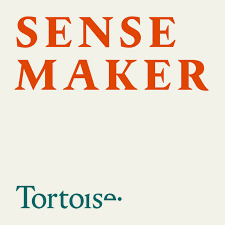
Check out Tortoise Media’s daily 5-10 minute podcast, Sensemaker Audio https://pod.fo/e/ee2f7
0 notes
Photo
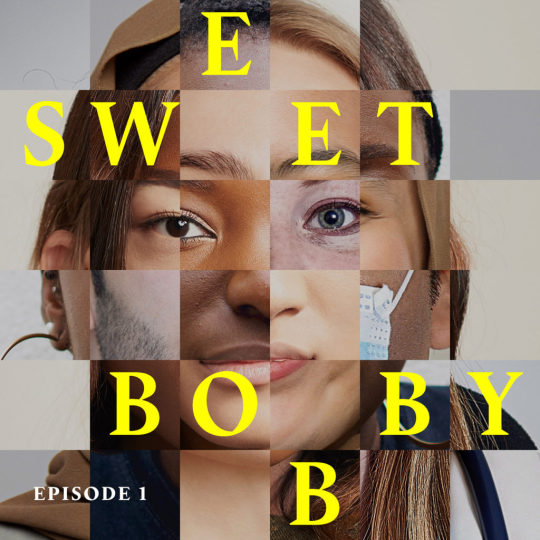
Check out Sweet Bobby on Tortoise - hell of a ride. https://www.tortoisemedia.com/listen/sweet-bobby/
0 notes
Photo

in 2017 hiro murai (atlanta, barry) directed a pilot for an adaptation of george saunders’ outstanding short story sea oak. glenn close is brilliant as bernie, one of the protagonists, and murai gets the anarchic vibe pitch perfect for 35 minutes of tv gold. but fucking amazon scrapped it, the cunts. what the actual fuck? i mean saunders, like many great literary stylists, should in almost no circumstances be adapted to film or tv. his language, the grasp he has over the short-story form, the way he uses omission are so perfect on the page that adapting to the screen is inherently going to water-down or simplify the original material. somehow, though, murai pulls it off perfectly. like paul thomas anderson with inherent vice, he perfectly captures the spirit of the source text, and it is entertaining too. fuck amazon for not picking this up.
watch it in poor quality here: https://www.dailymotion.com/video/x68o9xg
ffo: atlanta, subverting horror tropes, perfect literary adaptations, refusing to show your penis for money
4 notes
·
View notes
Photo

michelle zauner of japanese breakfast fame recently released this excellent memoir (ostensibly) about korean food and experiencing the death of her mother from carcinoma. her storytelling is impressively vivid considering this is her first book, and she infuses each moment with the emotional contradictions that grief elicits. it is a harrowing read along the lines of something like the year of magical thinking, and it is shot through with a rich exploration of biracial (korean-american) experience grounded in food. while it is a book about pain, it in fact has a nourishing vibe: nowhere in the memoir does zauner suggest that there is something redemptive about losing a parent to illness - it is in fact, the book confirms, extremely painful and traumatic - but there is so much life in the memories she traverses, that there is overwhelming beauty to be found in reading them.
here is the new yorker essay that was the basis of this memoir: https://www.newyorker.com/culture/culture-desk/crying-in-h-mart
ffo: emotional devastation, kimchi, the music of the pacific northwest, dedicated fridges
#michelle zauner#crying in h mart#japanese breakfast#jbrekkie#nourishing#disparatevibes#korean food#memoir
0 notes
Photo
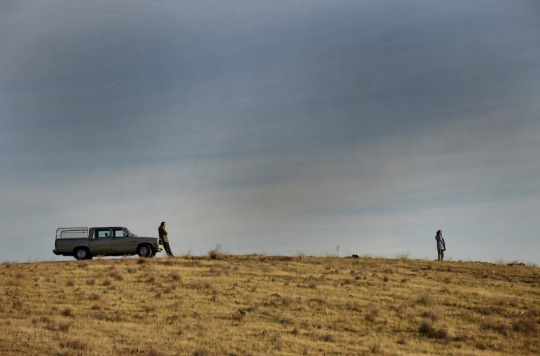
many of the best films of the past 30 years have come out of iran. the late, great abbas kiarostami and his spiritual successor asghar farhadi take complex and rich existential dives into the ethical grey areas between public and private experience, often positioned with the backdrop of authoritarian government regimes. mohammad rasoulof’s new vignette-structured thriller there is no evil snatches that torch from those guys and throws it into a vat of petrol. these are four stories that each revolve in some way around execution and stylistically, rasoulof has an incredible feel for space and environment - he can do claustrophobia and vastness equally well, he uses landscape to reflect the mental states of his protagonists in the same way something like no country for old men does. the perfomances are all incredible too - this film has a moralist vibe, could easily slip under the radar if you let it: don’t.
ffo: asghar farhadi, moral dilemmas, foxes, dipping your head in a pool of cold water
4 notes
·
View notes
Photo

ben lerner is probably my favourite living writer. his loose trilogy of novels is an incredible exploration of contemporary forms of language and their interactions with art, politics, the market, the self etc. this book compiles his three poetry collections - all published before his first novel - which exhibit his formal interest in the relationship between interiority and intersubjectivity. i don’t find his poetry as poignant as his prose, which lands so well largely due to his conversational style, but it is interesting to see how he was developing his thematic concerns in a different form for over ten years in the new york school. all of lerner’s work has an impossibly courageous vibe and is worth checking out immediately.
ffo: john ashbery, online slang mixed with academic idiom, linguistic antimeetings, serious bamming
2 notes
·
View notes
Photo

16 years after their classic album superwolf, matt sweeney and bonnie “prince” billy have come out with a follow up and it’s just as good as their first. they haven’t worked together since superwolf, and they wrote it the same way, with will oldham writing the lyrics first and matt sweeney arranging around the poetry. oldham’s lyrics are full of juxtapositions, evocative and ambiguous, horny and scary, funny and sad. the melodies and arrangements are very drag city: somehow mellow and abrasive at once, adding more edges to already arcane lyrics. the whole thing ends up having a psychedelic, almost drafty vibe, and is the best thing either artist has released in about 10 years imo.
ffo: your moms, your dads, your penguin birds, your first best friend and me
0 notes
Photo

michelle pfeiffer puts in a hell of a late career performance in this formally aggressive comedy with an oddball vibe. her performance is extremely loud, which works well with the highly affected dialogue and narrative left turns. in fact, all the performances are great: what initially seems to be a two character story accumulates an ensemble throughout, until they literally all sleep in the same apartment, wes anderson style. french exit is less whimsical than anderson’s films though - which i’m not a huge fan of - and lets in just enough naturalism for the subject matter to be emotive and for the film to point outwards beyond it’s boundaries. it is both absurdly hilarious and sad, and delivers on the exploration of its themes of familial relationships, class and privilege.
ffo: aki kaurismäki, psychics, ice-shrouded dildos, having your luck change
12 notes
·
View notes
Link
0 notes
Photo
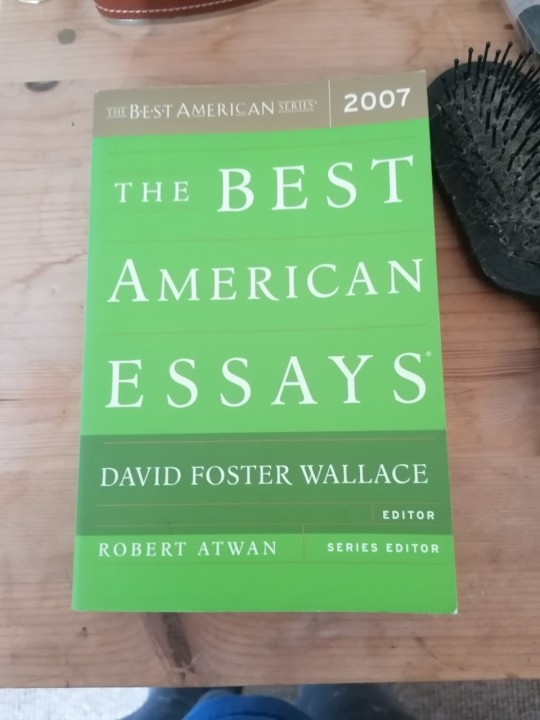
i read this mainly for wallace’s intro and jo ann beard’s classic essay, werner. the intro is actually a great wallace deep cut - i’d say it’s more essential than girl with curious hair. if you know him, you can guess the angle is onstensibly bamming up the editor and “wtf does essay mean?”. here’s a great bit:
‘...Which, yes, all right, entitles you to ask what ‘value’ means here and whether it’s any kind of improvement, in specificity and traction, over the cover’s ‘Best.’ I’m not sure that it’s finally better or less slippery than ‘Best’, but I do know it’s different.’
such a bammy vibe.
beard’s essay (which is finally being collected in this year’s festival days), applies her time-distorting style to the interior experience of titular character werner’s remarkable escape from an apartment block fire. it traverses essay and short-story, for sure, which, as wallace notes, is one of the funnest ways to write an ‘essay’.
ffo: ‘essays of literary achievement that show an awareness of craft and forcefulness of thought’
1 note
·
View note
Photo

along with george saunders’ a swim in a pond in the rain, this is my favourite book of the year so far. rachel kushner makes a case for herself as the 21st century’s joan didion - slouching towards bethlehem being the primary inspiration for the cover - it is that good. she writes about many of the topics covered in her novels with such a percipient vibe: motorcycles; san francisco’s tenderloin district; american prisons, as well as clarice lispector (whom i now have to read); denis johnson; marguerite duras. she places herself inside the contexts of her cultural subjects while dispassionately insisting on authorial externality (fernanda eberstadt writes evocatively about this tension in her review for nyt). my favourite thing about kushner’s writing has something to do with this ontological uncertainty. she constantly gestures outwards to overtly relational worlds permeated with hightened emotional and physical sensation, while situating herself as an embedded impassive - i really hate this sentence but am pretty sure i can’t do a better job of describing my feeling about it in a short paragraph, just read this extract and you might get what i mean:
“You are busy being born the whole first long ascent of life, and then, after some apex, you are busy dying: that’s the logic of the line, it’s syntax, as I interpret. “Being born” here is an open and existential category: the gaining of experience, a living intensely in the present, after which comes the long period of life when a person is finished with the new. This “dying” doesn’t have to be negative. It too is an open and existential category of being: the age when the bulk of your experience, the succession of days lived in the present, are mostly over. You turn reflective, interior, to examine and sort and tally. You reach a point where so much is behind you, but its scenes continue to exist somewhere, as memory and absence at once, as images you’ll never see again.”
fernanda eberstadt’s review: https://www.nytimes.com/2021/04/09/books/review/the-hard-crowd-rachel-kushner.html
ffo: joan didion, motorcycles, italian radical politics, knowing tons of stuff
#rachel kushner#joan didion#the flamethrowers#the hard crowd#disparatevibes#percipience#essays#contemporary literature
1 note
·
View note
Photo
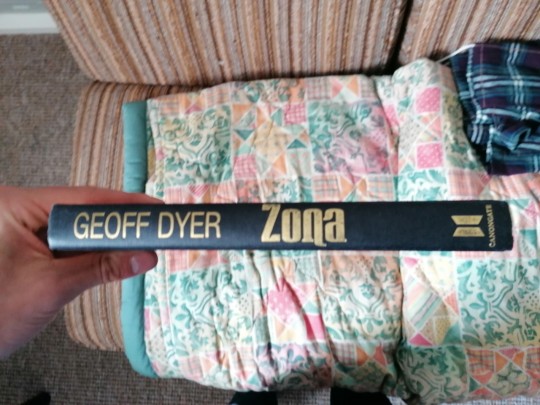
geoff dyer’s book-length study of tarkovsky’s stalker reads like the writer locked himself in a room with a 35mm print of the meditative cult classic and a bottle of vodka. it’s basically an extended synopsis of the film, by which dyer’s signature conversational vibe leads the reader through “the zone” and its profound non-metaphor-ness. like the film, it takes a while to get going, but by the final third had me laughing out loud with its slapstick contempt for the myopic elements of intellectual culture.
ffo: w.g sebald, threesomes, messenger bags, post-criticism, 20th century art-house cinema
2 notes
·
View notes
Photo
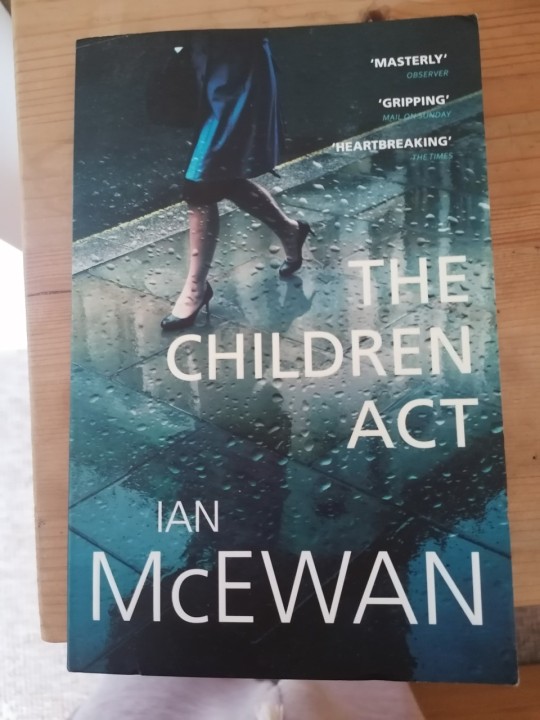
since i got ‘serious about reading’ about 10 years ago, i’ve had an idea of ian mcewan that is largely based on that excessively grandiose film adaptation of atonement. i haven’t read that movie’s source novel, but based on the two books of his that i’ve recently inhaled (the children act and nutshell), everyone involved with the production completely misunderstood the vibe. these two excellent novels are indeed extravagant, but not in any sort of cosmic way. instead, the affected ‘literariness’ of the language functions to render a particular world characterised by banal power. otherwise, the scope is pretty small - the events are contained and the plots are minimalist - and the point is much more to drink in the technical details of a very specific worldview with meticulous authority. the children act’s particular vibe is to inhabit the mind of a high-court judge whose legal and ethical interests and responsibilities bleed into her personal life (that’s pretty much it, without giving away specifics). there was a movie made of this one too, and i dread to imagine the degree to which that transmutation diminishes this lovely little novel. anyway - if you have any of the same hangups that i had about mcewan founded on his apparent indifference regarding his film optioning, perhaps give him a chance.
ffo: martin amis (not the new stuff), studies of institutional authority, middle-age relationship dynamics, authors that can actually pull off high-stakes plot points
0 notes
Photo

this is a short story cycle that feels like a warm hug, the voice so intimate that the reader comes to feels that they are reminiscing with the narrator. jo ann beard’s first book from way back in 1998 pre-empts the trend in autofiction that has so dominated the past 10 years of contemporary writing. the quietly profound banalities of her midwestern narrative punctuated by friendships and loves gained and lost are - we assume - lifted straight from her life. she renders the stories about her infant and adolescent years with a rare convincing vividness, and there is a disturbing outlier that i wouldn’t dare spoil. i discovered her writing in the o. henry prize stories 2018 collection which features her short story ‘the tomb of wrestling’ - a story in which the narrator confronts a home intruder - which was so arresting that i now have to read all of her work. comfy vibe
ffo: tobias wolff, cigarette-smoking women, animal narration, being unsentimental
0 notes
Photo

painting with john and it’s 90s spiritual predecessor fishing with john are two of my favourite recent discoveries. they both star renaissance man john lurie doing a bit of the titular activities but mostly playing around with the form of factual entertainment television. the fishing one has a much more irreverant, oddball vibe, and isn’t really interested in any sort of redemptive value (it was the 90s) but is absolutely hilarious, especially to anyone who sits around imagining scenarios in the model of: “enigmatic 20th century cultural figure meets other enigmatic 20th century cultural figure and they engage in an obscure and disparate cultural activity”. the guests are all quality: jim jarmusch, tom waits, matt dillon, willem dafoe, dennis hopper.
the painting one is more solitary - there aren’t strictly any guests - and legitimately pedagogical (though undisguisedly not in the bob ross mould). lurie’s past 20 years of what he calls ‘bad fortune’ - during which time he endured cancer, an intense stalking incident and contracted lyme desease - loom over the show tonally, permeating the performative storytellling and humour with a melancholy that isn’t present in the fishing one. it is something like an audiovisual podcast with a saudade vibe, in which john lurie drops wisdom in a beautiful, rib-ticklingly elliptical manner.
ffo: early jim jarmusch films, farcical docudramas, the memory palace, creative raconteurs
10 notes
·
View notes